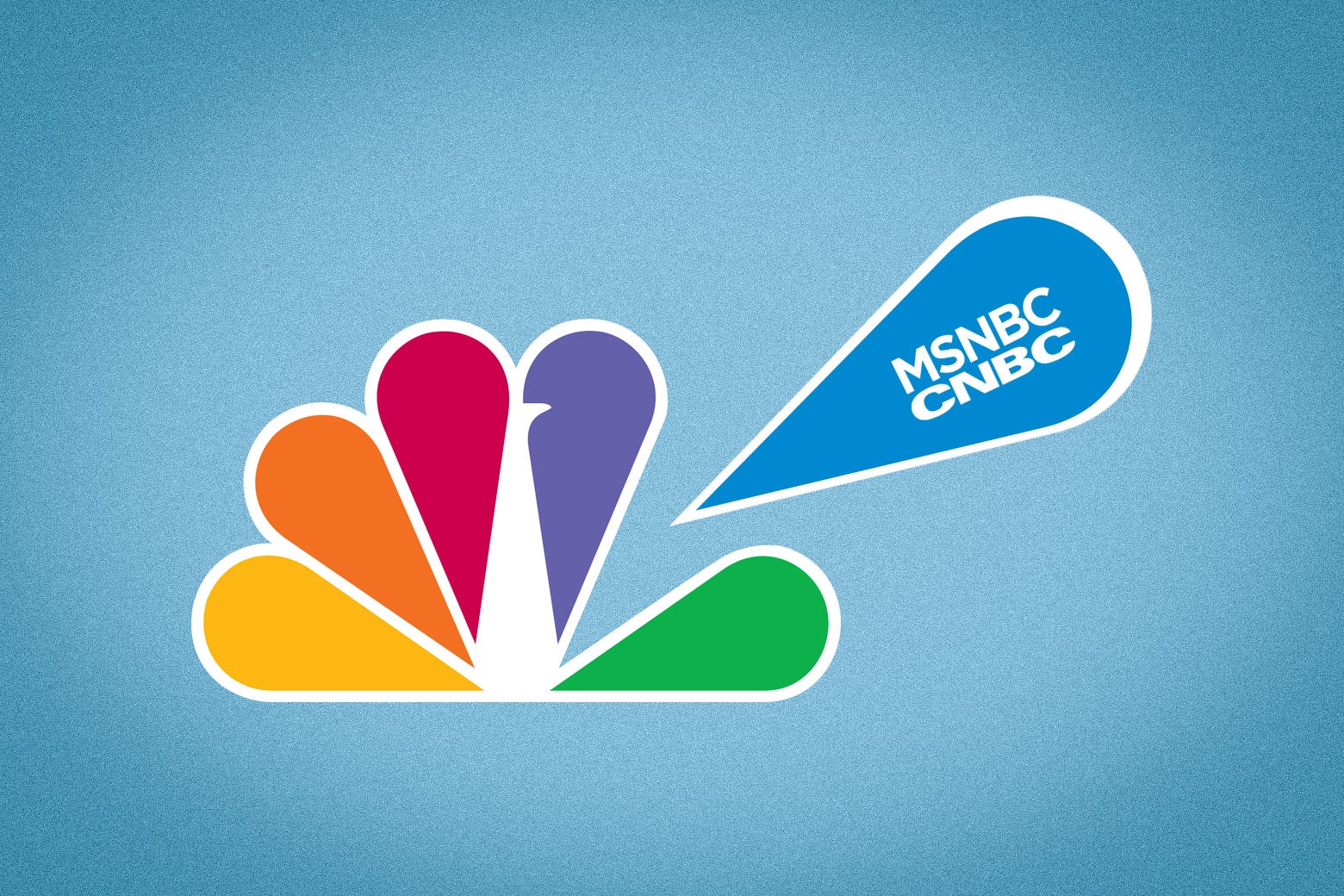On Tuesday, the notorious telecommunications firm Comcast confirmed that it would follow through on a dramatic proposal it made to investors last month: to officially sell off almost all of its cable TV properties in a $7 billion deal. The purge will affect a large chunk of Comcast’s overall media portfolio, keeping only the core NBCUniversal brand (home to NBC, Peacock, Telemundo, and Universal) and the reality-TV empire Bravo. Meanwhile, over the course of a year, CNBC, E!, Fandango, the Golf Channel, MSNBC, Oxygen, Rotten Tomatoes, Syfy, and USA will all be severed from 30 Rock, packaged into a publicly traded company with the working title “SpinCo,” and overseen by NBCUniversal Media Group chairman Mark Lazarus.
Understandably, the vibes are off at the media company. Anchors at CNBC—which has undergone multiple layoff rounds over the past year—made grim jokes about the situation on air Wednesday as an inside source told the Hollywood Reporter that the mood was “annoyed, but probably fine.” (A staff meeting with Lazarus the very next day seemed to calm some nerves.) Things were even more jittery at MSNBC, with insiders telling media outlets that workers are “depressed” and “in a panic,” thanks to lingering uncertainty about how MSNBC will actually cut off its close connections with NBC—and whether it may even have to change its name. The embattled network was already smarting from plummeting postelection ratings and further viewer backlash to the Morning Joe co-hosts’ recent kiss-and-make-up session with Donald Trump when more bad news hit: Lachlan Cartwright’s report at the Ankler about an impending all-around host shake-up that will see even Rachel Maddow earning a softer paycheck.
Yet another unknown is how SpinCo will be expected to operate in the ever-whittling cable landscape when divorced from the still-powerful NBC brand. With Comcast retaining the reinvigorated Peacock streamer, SpinCo’s TV brands will have to figure out an ideal streaming situation to keep viewership consistent. They will also have to negotiate their carriage fees with network TV distributors while lacking the power and perks attached to the NBC name: the sports-broadcasting rights, the backing from Comcast revenue, and the audience brand loyalty in a time of relentless cord-cutting. Bloomberg’s Lucas Shaw reports that SpinCo will “explore acquiring other cable channels and creating its own streaming services,” with an eye toward expanding to include “channels specializing in documentaries or food-related shows.”
There are still more headwinds for SpinCo—most notably, Donald Trump’s incoming administration, whose ranks will likely include FCC Commissioner Brendan Carr as chairman of the entire regulatory body. Already, Carr has ranted publicly about NBC featuring Kamala Harris on Saturday Night Live during the election cycle, and Trump sued CBS last month based on conspiratorial claims that 60 Minutes made “edits” favorable to Harris for the final cut of its interview. Any future SpinCo mergers/acquisitions will require federal approval, and we know from the first Trump administration that his team is not above punishing the cable channels he hates, such as CNN and, yes, MSNBC.
We all know that traditional TV has been declining for decades now, for myriad obvious reasons. But the NBC/SpinCo situation may be representative of an even grimmer media trend: powerful corporations choosing to expedite the devaluation of the cable industry altogether. As veteran TV reporter Josef Adalian noted in Vulture: “[By] basically giving up on originals, and getting rid of the execs who used to work on marketing and scheduling these channels, NBCU and others put their cable holdings into hospice care years before they needed to make that transition.”
As I noted back in September, Disney and DirecTV’s brawl over the matter of distribution fees and channel packaging grew so intense that the fights and insults spilled out into every public forum imaginable. (The two companies soon reached a midmonth agreement that was relatively favorable to DirecTV; the latter company did see a recent setback, though, when bondholders rejected its proposal to acquire fellow satellite provider Dish.) Over the summer, Paramount, on the gravelly road to that Skydance acquisition, scrubbed the internet of old clips from its brand IP (TV Land, etc.) and then shut down its TV studio, after writing down the value of its cable unit by $6 billion; its iconic properties Comedy Central and MTV have been left to suffer on air as “ghost networks,” with repetitive schedules of familiar reruns and long-running titles that remain somewhat viable (The Daily Show with Jon Stewart, South Park).
For the time being, Warner Bros. Discovery CEO David Zaslav may be the only who sees the coming years as a beneficial time for this type of media, claiming that Donald Trump and a Republican Congress could preside over a “consolidation”-friendly era for big business. But does Zaslav really want to buy more TV? After having fused Warner and Discovery back in 2022, after having junked countless beloved properties from that megaportfolio, after having mulled voluntarily breaking up his own company—Zaslav seems instead content to sell off small bits of the business at a time, including (you guessed it) international TV broadcasters, like All3Media and TVN. He isn’t selling off CNN yet, although the storied newscaster is facing its own revenue issues and lawsuits from Trump allies.
The trendlines are stark: Cable TV is not perking back up anytime soon, and its stakeholders seem eager to just scrap the whole thing altogether, perhaps sooner than later. Combine that with a media-hostile (and TV-addled) Trump administration, and it seems pretty clear what 2025 may bring—the demise of liberal TV as we know it. But at least you’ll be able to enjoy all that Netflix slop.


